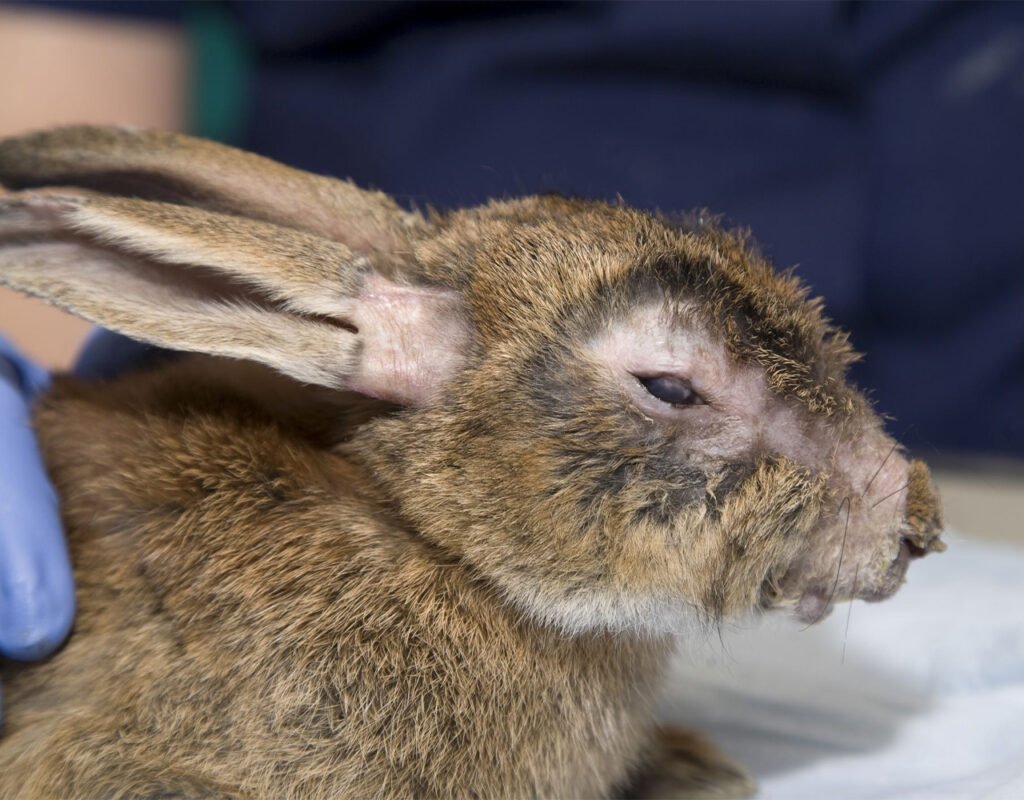A healthy rabbit makes a wonderful pet. However, like other pets, your rabbit needs to be cared for to avoid serious health problems. Regular visits to the vet and a healthy diet can go a long way in keeping your rabbit healthy and happy, but watch for signs that your rabbit may be sick.
Why Do Rabbits Get Sick?
As with most pets, there are a number of reasons why rabbits get sick. They may be exposed to germs, eat something that causes illness, have a genetic predisposition to a disease, or other reasons. Because of their status at the bottom of the food chain, rabbits usually hide signs of illness. If they show weakness, they are in danger of becoming prey. Of course, your pet is probably not in danger of being eaten, but you still need to watch them carefully to spot early signs of illness. Some common signs of illness include:
Lower energy and appetite: Rabbits show two significant signs of illness: decreased energy (or lethargy) and decreased appetite for food and water.1

Heart disease in rabbits. Chicago Exotics Animal Hospital, 2020,
These are vague symptoms and can indicate a number of illnesses. Keep an eye on your rabbit’s food and water consumption as this will help you quickly identify if your pet is having health problems.
Lack of or excessive bowel movements: Rabbit gastrointestinal stasis (RGIS) is a common sign of illness in rabbits that occurs when the animal stops eating.2 This causes everything in the digestive system to slow down and the rabbit to stop having bowel movements. Gastrointestinal stasis can be the result of an inadequate appetite, such as a lack of fiber, dental problems, or a secondary problem such as liver disease or cancer. Diarrhea or loose stools can also be a sign of trouble and indicate a possible parasitic or bacterial disease.
Poor grooming habits: Rabbits are known for keeping themselves clean. Therefore, any signs that the rabbit is not grooming itself, such as feces stains on the paws or matted fur, are a sign that the rabbit is not well. Drooling, sloppy or missing fur on the coat and neck are also signs of illness, possibly dental disease. In addition, dandruff, general hair loss, or a flaky coat can be a sign of an infection that can be contagious to other animals or even humans, as in the case of the “walking dandruff mite” Cheyletiella parasitovorax.3
Cold symptoms: Rabbits can only breathe through their noses, so upper respiratory disease is a serious health concern. If it looks like your rabbit is suffering from a cold, with symptoms such as nasal discharge, sneezing, coughing, breathing problems, including breathing with an open mouth, it needs to be examined by a veterinarian as soon as possible.
Head tilt. If your rabbit’s head tilts to one side, the eye on that side seems to be having trouble, or the rabbit has poor coordination, it could be suffering from sudden head tilt, a dysfunction of the system that controls the rabbit’s balance.4

Treatment
The treatment a veterinarian prescribes will depend on the rabbit’s condition. Try to keep your rabbit hydrated and warm during treatment. A syringe of water or soft food (apple sauce or baby food) may be helpful. Depending on the condition, your veterinarian may prescribe prescription medications to improve your rabbit’s condition. Rabbits can get sick quickly, so make sure you have a veterinarian who treats rabbits. Like other pets, rabbits should see the vet at least once a year until they are 4 years old, and then visits should be every 6 months after that. A veterinarian has expertise in recognizing signs of rabbit disease before it develops into a major health problem.
How to Prevent Disease
It is not entirely possible to prevent disease in rabbits. Prevention helps. Feed them healthy food, provide them with a clean and loving environment and avoid extreme temperatures. Touching their bodies is just as important as observing their behavior for illness. Their hands will tell you about changes in their body condition and you will spot lumps or injuries early on. It is not as time-consuming as you might think. Rabbits get used to it quickly. ell to physical attention and you will get used to taking care of them.

